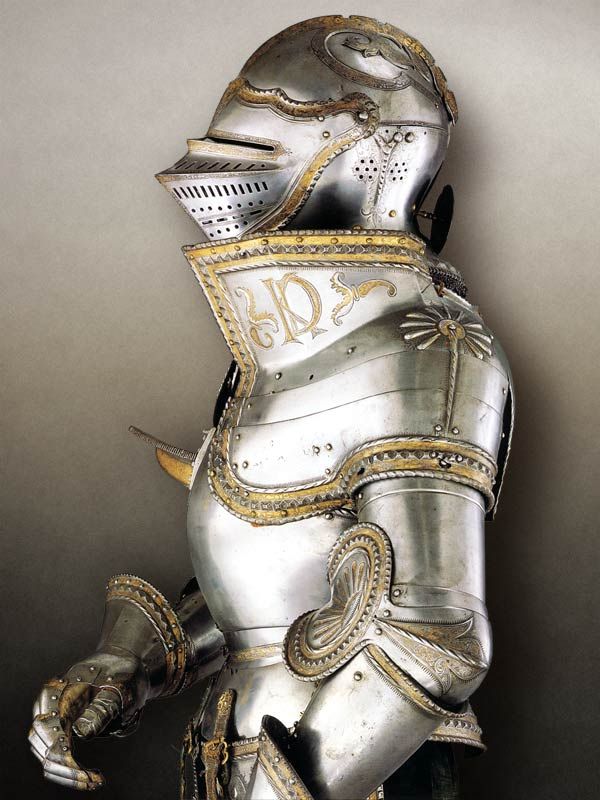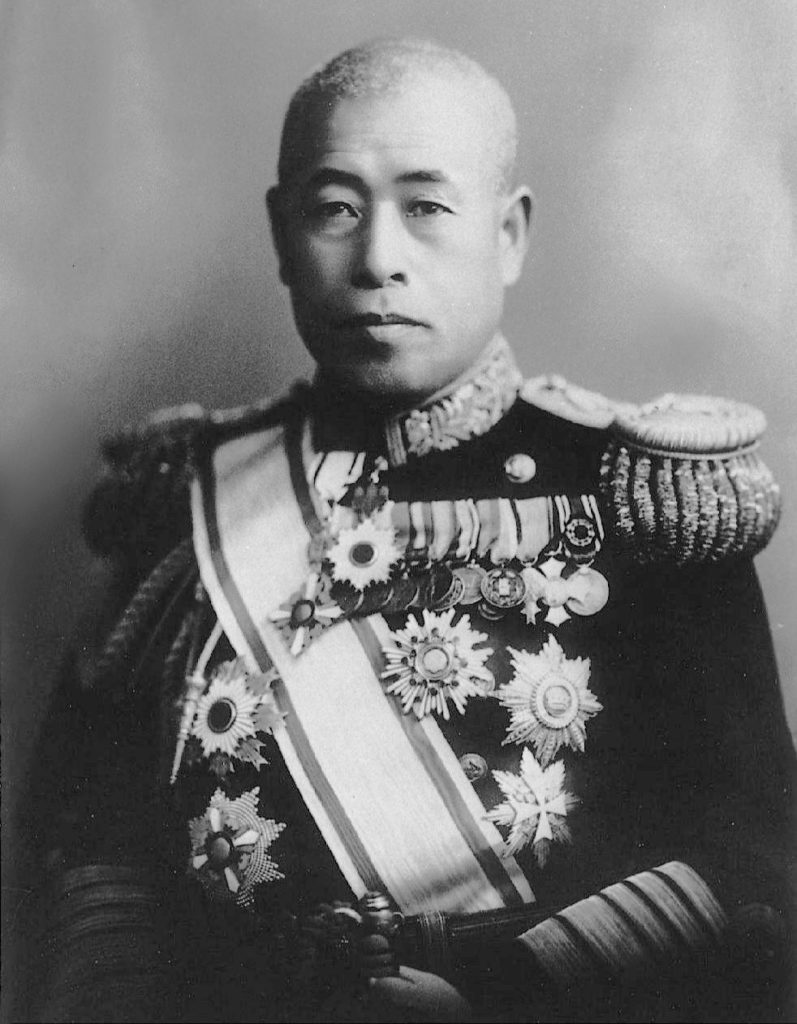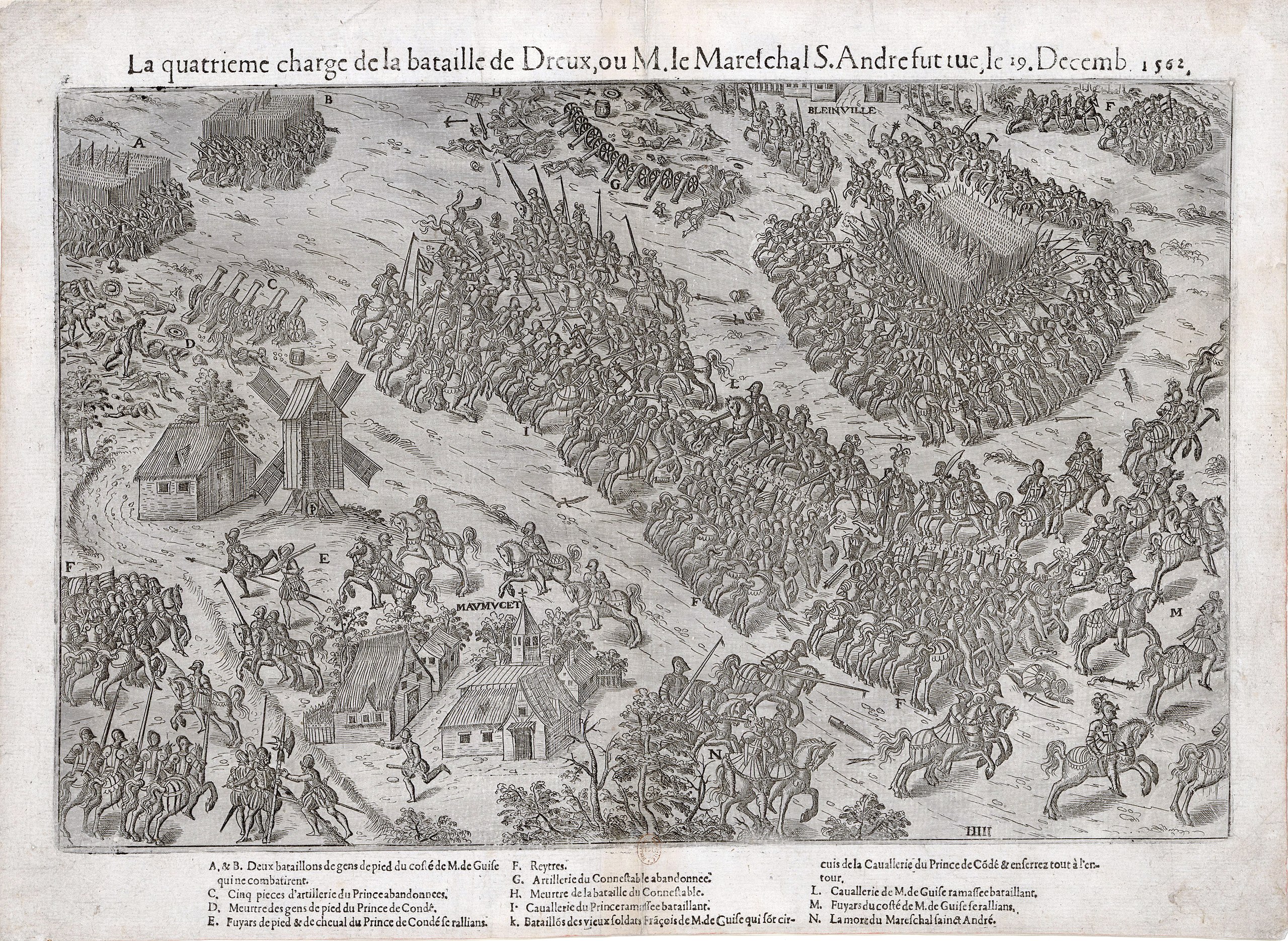1 – All The King’s Horses
The first anecdote concerns the Battle of Dreux (December 19, 1562), the first major pitched battle of the French Wars of Religion. Over the course of the day, in a rather muddled battle, the Catholic forces of the Duke of Guise defeated the Huguenots under the Prince of Condé and took Condé prisoner, even as the Huguenots also succeeded in capturing the senior commander of the Catholic faction, Anne de Montmorency (and yes, Anne was a man).
In any event, at one point in the battle, the Duke of Aumale, the younger brother of the arch-Catholic Duke of Guise, was unhorsed during a massed cavalry charge and was trampled by nearly the entire cavalry of the Catholic army. It was thought that he was dead, as no man could possibly survive being trampled by an entire cavalry force.

Armor of Emperor Charles V (Wikimedia Commons)
However, when the battle was over, the Duke of Aumale was discovered on the field, very much alive and relatively unhurt. Apparently, he had fallen into some muddy ground, and was protected from the hooves of the French cavalry by the solid plate armor he was wearing. Personally, I find the idea of such a strong suit of armor astonishing, although when you look at the suit of armor worn earlier in the century by Charles V, you can begin to understand how a man could survive being trampled by an entire army when encased in it.
2 – Yamamoto’s Prank
Japanese admiral Isoroku Yamamoto (later famous as the architect of Pearl Harbor and the attempted invasion of Midway) was an incorrigible prankster. He was also, in the years prior to World War Two, an inveterate opponent of the militarist faction within the Japanese government, which called for war against China, Britain, and the United States (Japan’s government was bitterly divided, with the militarists, led by the Imperial Japanese Army, gradually silencing and sidelining the anti-war faction, championed by high-ranking officers within the Imperial Japanese Navy).

Admiral Isoroku Yamamoto
Anyways, on one occasion Yamamoto was present in a large conference, during which one of the militarist generals stood up and began giving an interminable speech on Japan’s need for a war against the western imperial powers and the inevitability of her eventual triumph. As the officer droned on and on, Yamamoto stealthily slid his chair further and further back, so that when the officer ended his speech and attempted to sit back down, he missed his chair and went sprawling across the floor. Throughout the ensuing brouhaha, Yamamoto maintained his poker face, staring straight ahead and holding in his peals of laughter.
3 – James Miranda Barry
0n July 25, 1865, Dr. James Barry died of dysentery in London. Dr. Barry had been a prominent medical officer in the British Army and had risen, over a fifty-year long career, from unknown origins to the second-highest medical rank within the army – Inspector General. He was in charge of all the military hospitals maintained by the British Army and was further renowned for having carried out the first known successful caesarian section (in which both mother and baby survived) in Africa.
However, as Barry’s body was being prepared for burial, the charwoman discovered that he was, in fact, not a “he”. James Barry was in fact a woman, and what was more, the stretch marks on her abdomen indicated that she had borne a baby at some point as well. Further investigation revealed that she had been born Margaret Ann Bulkley, and had disguised her sex in order to gain admission to the University of Edinburgh and a commission as medic in His Majesty’s Army.

Dr. James Miranda Barry
It is unknown just how many people knew of Barry’s secret – although the fact that she had a baby definitely seems to indicate that somebody knew she was really a woman. Barry was also rumored to have carried on a sexual relationship with the Governor of the Cape Colony, Lord Charles Henry Somerset, although at the time, people assumed that it was a homosexual relationship.
In any event, Barry had a rather explosive temper, and is recorded as having fought at least one duel (in which she cam out on top) and was known to have a sharp and abrasive personality. One woman who wasn’t very keen of Barry was Florence Nightingale, who had a dispute with him concerning the military hospitals, concerning which she later wrote to her sister, Lady Verney:
“I never had such a blackguard rating in all my life – I who have had more than any woman – than from this Barry sitting on his horse, while I was crossing the Hospital Square with only my cap on in the sun. “He” kept me standing in the midst of quite a crowd of soldiers, Commissariat, servants, camp followers, etc., etc., every one of whom behaved like a gentleman during the scolding I received while “he” behaved like a brute . . . After “he” was dead, I was told that (Barry) was a woman . . . I should say that (Barry) was the most hardened creature I ever met.”
situs gacor
situs toto
rtp slot
situs gacor
link slot
situs gacor
slot resmi
slot resmi
